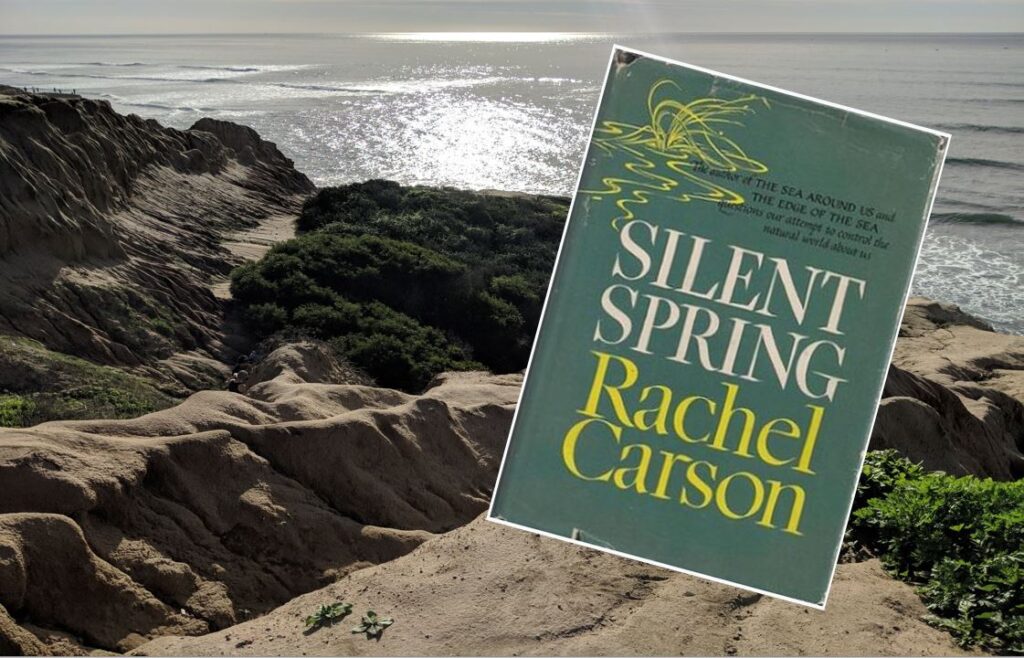In honor of the US return to the Paris Climate Accords, I’m considering a modern classic. In 1962 Rachel Carson’s Silent Spring became a powerful part of the environmental movement.
Reading this formidable work reminded me, in 2021, so much time has passed since we started poisoning our world there’s few folks left who remember the before times.
In her chapter “And No Birds Sing”, she quotes a letter from a woman who remembered the bird song.
Here in our village the elm trees have been sprayed for several years [she wrote in 1958]. When we moved here six years ago, there was a wealth of bird life; I put up a feeder and had a steady stream of cardinals, chickadees, downies and nuthatches all winter, and the cardinals and chickadees brought their young ones in the summer. After several years of DDT spray, the town is almost devoid of robins and starlings; chickadees have not been on my shelf for two years, and this year the cardinals are gone too; the nesting population in the neighborhood seems to consist of one dove pair and perhaps one catbird family.
I recently heard a piece of news that there was a team cataloging smells for historical research. I wonder if anybody recorded the sounds of the world when it rang riotous with bird song because as the people who heard it pass on the treasure of the memory of that beautiful music will be gone forever.
An important piece of information often lost in the pesticide versus no pesticide debate initiated by Carson’s book is that she didn’t advocate a cease and desist for all pesticide use. She promoted its careful, discriminating use and explained how it would be more effective if used with judicious, selective use.
This Work’s Powerful Legacy
Demonstrating this powerful book’s legacy is its inclusion in many lists of best nonfiction books of the twentieth century and kudos from respected scientists.
5th in the Modern Library List of Best 20th-Century Nonfiction
78th in the National Review’s 100 best non-fiction books of the 20th century.
Named one of the 25 greatest science books of all time by the editors of Discover Magazine
In 2012, the American Chemical Society designated the legacy of Silent Spring a National Historic Chemical Landmark at Chatham University in Pittsburgh.
Naturalist David Attenborough declared Silent Spring was perhaps the book that had changed the scientific world the most, 2nd only to the Origin of Species by Charles Darwin.
In our current times, Ms. Carson might be as scared as many of us be the disregard for the impending doom awaiting us if we don’t make monumental changes in our environmental policies. But I also like to believe she would be proud that there are so many of us fighting for the save our planet.
Have you read Rachel Carson’s Silent Spring? Have you heard of it?
Are you one of the people fighting to save our planet? Tell me about your efforts?
